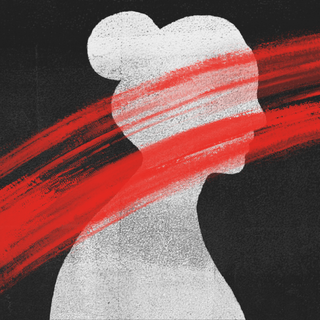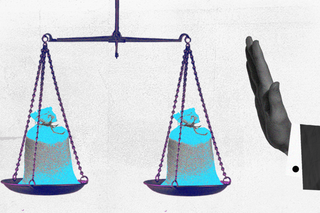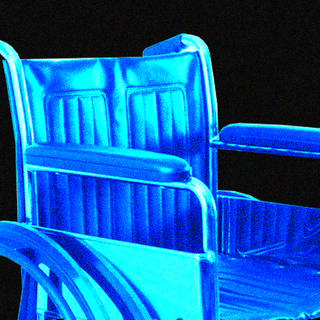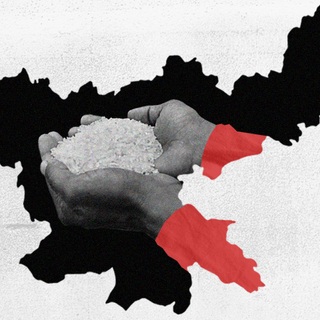
People With Privilege Tend to Think Welfare Policies Will ‘Harm’ Them, Shows Research
“We thought, maybe if we make a win-win or mutual-benefit situation, then maybe [advantaged people] will see the equality-enhancing policies as helpful. But they didn’t.”

“If you rise, I fall.” This rather pithy phrase conveys the findings of a new study that shows why privileged members of society tend to oppose pro-equality policies — or “welfare schemes.” People with structural advantages become rather territorial when it comes to socio-economic resources, and would rather continue to have exclusive access to them, rather than share it with those less privileged.
In other words, equality threatens the status quo of the privileged.
Published in Science Advances, the research findings are based on a series of studies involving more than 4,000 volunteers. Collectively, they “demonstrate that advantaged group members misperceive equality as necessarily harming their access to resources and inequality as necessarily benefitting them,” the authors noted.
For one of the studies, the researchers presented a few welfare policiesbefore a group of participants. They were told that the policies weren’t designed to advantage them, but wouldn’t disadvantage them either. Instead, they would benefit women, racial minorities, people with disabilities, and individuals who had been discriminated against in the past. The participants were also told that resources — in the form of jobs or money — were boundless in this scenario.
Yet, the said participants continued to see the policies as “harmful” to society.
“We find that advantaged members misperceived these policies as a sacrifice to their group, even when that’s not the case… It’s pretty troubling what we found,” said Derek Brown from the University of California, Berkeley, who was the first author of the paper. “We thought, maybe if we make a win-win or mutual-benefit situation, then maybe [advantaged people] will see the equality-enhancing policies as helpful. But they didn’t.”
Related on The Swaddle:
People From Higher Socio‑Economic Backgrounds Often Exhibit Lower Emotional Intelligence: Study
The results remained the same even when the participants were told the policies would benefit both them and disadvantaged groups in a world with boundless resources. The mere possibility of the latter group benefitting more became the causal factor.
The research speaks to the psychology of entitlement and the way welfare is perceived in a system built on inequity and structural discrimination.
One question that arises here is whether the opposition to welfare policies is based on the conservative notion that “welfare makes people lazy,” or whether the notion is an offshoot of their unwillingness to share resources. But given that the purported link between welfare and “laziness” has been debunked by research, and it still continues to persist, might suggest that it simply serves as yet another front to hide the selfish interest of maintaining the status quo regarding access to resources.
The desire to protect the status quo is indeed potent. Interestingly, in the present study, the researchers found that welfare policies were perceived as relatively less harmful when they benefitted disadvantaged people who shared a part of the participants’ identities In other words, if white participants were told an economic welfare scheme would benefit more white people who were economically disadvantaged, than Black individuals at the same economic rung, the participants deemed it less harmful to their interests.
Referencing U.S.-focused research, an article on Talk Poverty notes, “[W]hite people’s racial attitudes are the single most important influence on their views on welfare… [those] who are more prejudiced toward black people are also significantly more opposed to welfare. Numerous studies in the social sciences have substantiated this claim.”
We have witnessed a version of this in India too: people from privileged castes would rather support reservations for economically deprived individuals from the “general”-category, rather than bolster the case for caste-based reservations.
Related on The Swaddle:
Census 2021 Will Not Include Caste‑Wise Data Despite Demands From Activists, Politicians
According to Brown, the result shows that “when we identify ourselves with a certain group, and see a disparity occurring within our group, we are motivated to reduce that in-group disparity.” Or, perhaps, it could indicate the existence of biases against “other” communities. Prejudices held by the privileged populations against their less-privileged counterparts — based on racism, casteism, ableism, sexism, or any of the other “-isms” — can hinder support for welfare policies.
This is, perhaps, the same reason why so many Indians from privileged castes are opposed to caste-based reservations — even though all these policies are aimed at is leveling the playing field. One may wonder if this is also the driving factor behind the Women’s Reservation Bill, introduced in 1996, still waiting to be passed. The desire to preserve the status quo — in a society as patriarchal and casteist as ours, benefits cishet men from privileged caste. So, naturally, they worry welfare will “harm” them.
Dan Meegan, a psychologist at the University of Guelph in Canada, who wasn’t involved in the study, told New Scientist, “The work paints a pretty dark picture for those trying to convince people to support policies designed to reduce intergroup inequality. The authors gave their participants every opportunity to see that helping disadvantaged groups need not come at the expense of advantaged groups, to no avail.”
But Brown still has faith, “I think people have the capacity to believe in these policies. And I think there’s a way forward, we just have to find it.”
Education, perhaps, is one solution, Brown suggests. Whether it will indeed address people’s aversion to equality-boosting policies, only time — and, perhaps, studies like this one — can tell.
Devrupa Rakshit is an Associate Editor at The Swaddle. She is a lawyer by education, a poet by accident, a painter by shaukh, and autistic by birth. You can find her on Instagram @devruparakshit.
Related


Almost 1 Billion People With Physical Disabilities Lack Access to Assistive Aids, Finds Global Study
